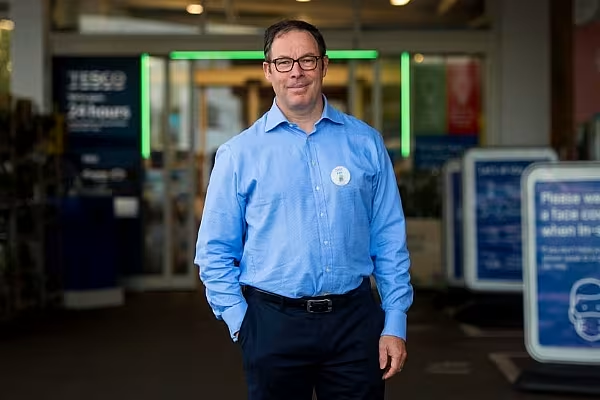The chair of Tesco told investors on Friday he had "no difficulty" defending the near £10 million ($13 million) pay package of the British supermarket group's CEO as it had to be competitive in the global market for top talent.
Investors have become more vocal in their opposition to boardroom pay deals they deem excessive amid a cost-of-living crisis.
Several shareholders attending Tesco's annual meeting asked chairman Gerry Murphy to justify the more than doubling in CEO Ken Murphy's 2023/24 pay to £9.93 million, while contract cleaners and security staff were paid less than the so-called real living wage paid voluntarily by some UK employers.
Investors pointed out that Ken Murphy's pay was 430 times what the average Tesco employee earns.
"I have no difficulty in defending Ken's absolute level of pay given the complexity (and) scale of the business, but also particularly its performance," said Gerry Murphy, who is not related to the CEO.
He said a large chunk of Ken Murphy's package was the crystallisation of share awards he received on joining Tesco in 2020 and reflected "years of value creation for Tesco and its shareholders".
"We do recruit from time to time at very senior levels from the global market and frankly we just have to be competitive with that market," Gerry Murphy added.
'I'm Well Paid'
Ken Murphy had earlier told reporters: "I absolutely accept that I'm well paid."
Just 6.5% of votes cast at the annual meeting opposed Tesco's 2023/24 remuneration report.
Established by charity the Living Wage Foundation, the real living wage is a calculation of the minimum hourly rate necessary for workers to afford housing, food, and other basic needs.
Currently, it is £13.15 per hour in London and £12 in the rest of the United Kingdom – higher than Britain's main government-mandated minimum wage of £11.44 per hour.
Gerry Murphy said in recent years Tesco had made record levels of investment in worker pay.
He said Tesco worked with a small number of contractors and applied the same ethical standards to them as its own employees.
"But it's up to them to manage their relationships with their employees," he said.














